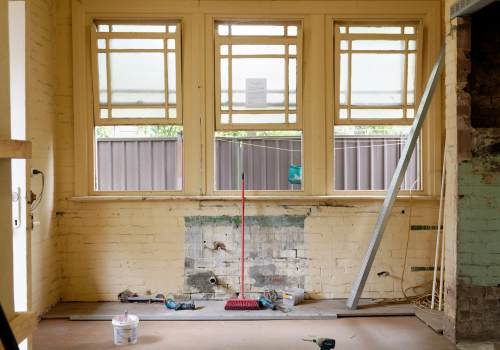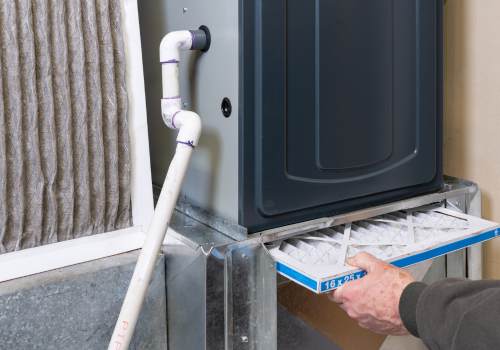10 Clever Lease Clauses You Can Negotiate With Landlord
You’re about to discover how to turn the tables on your next lease negotiation.
While most tenants simply sign on the dotted line, accepting whatever terms the landlord presents, you’ll learn to transform a standard rental agreement into a powerful tool that works in your favor.
From securing early termination rights to locking in maintenance response times, these strategic clauses can save you thousands of dollars and countless headaches during your tenancy.
Let’s explore the art of smart lease negotiation – because what you don’t know about rental agreements could be costing you more than just money.

Early Termination Rights
Early termination rights stand out among the most essential lease provisions to negotiate up front.
You’ll want to secure the ability to exit your lease without hefty penalties if specific circumstances arise.
Negotiate for termination rights triggered by job relocation, health issues, or life changes like marriage or divorce.
Your ideal clause should include a reasonable notice period (typically 30-60 days) and clearly defined exit costs.
Push for a maximum fee of two months’ rent, rather than being liable for the entire remaining lease term.
You’ll also want to specify acceptable documentation requirements, such as an employer’s transfer letter or medical records, to validate your early termination request.
Don’t accept vague language that gives your landlord discretion over approval – insist on objective, measurable criteria.
Repairs and Maintenance Responsibilities

The division of repair and maintenance duties between landlord and tenant can shape your entire rental experience.
You’ll want to negotiate specific response times for repairs based on their urgency, with clear definitions of what constitutes an emergency versus routine maintenance.
Insert clauses that require your landlord to maintain detailed repair records and provide you with copies of all maintenance invoices.
You’re entitled to know who’s entering your space and what work they’ve performed.
Specify that only licensed contractors can perform major repairs, and secure the right to hire your own contractor if the landlord doesn’t respond within agreed-upon timeframes.
Don’t accept vague terms like “reasonable wear and tear.”
Instead, document the unit’s condition thoroughly at move-in and define exactly what maintenance you’re responsible for versus the landlord’s obligations.
Pet Policy Flexibility
Standard pet policies often lock tenants into rigid restrictions, but you can negotiate more flexible terms that benefit both parties.
Request a sliding scale deposit system where you’ll pay a lower initial pet deposit for well-behaved, smaller pets, with the option to add additional pets later without excessive fees.
Negotiate for a trial period that allows you to demonstrate your pet’s good behavior. You can propose quarterly inspections in exchange for lifting breed or size restrictions.
Include provisions for temporary pet-sitting rights, allowing you to watch friends’ pets for short durations.
Consider suggesting a pet interview where your landlord can meet your animal before making blanket restrictions.
You can also request that pet deposits be partially refundable based on maintaining property condition, incentivizing responsible pet ownership.
Rent Payment Grace Period

During financial uncertainties, negotiating a flexible rent payment grace period provides essential protection against late fees and eviction risks.
You’ll want to secure a written clause that extends the standard grace period from 3-5 days to 7-10 days, ensuring you’ve got breathing room when unexpected expenses arise.
Specify exactly when late fees kick in and cap them at a reasonable percentage (ideally 3-5% of monthly rent).
You can also negotiate to have one “free” late payment per year without penalties.
Make sure the clause clearly states that weekends and holidays don’t count toward the grace period.
Additionally, lock in a provision that requires your landlord to provide written notice before evaluating any late fees, giving you time to address payment issues proactively.
Security Deposit Return Timeline
Securing a clear security deposit return timeline in your lease protects both your finances and legal rights.
While state laws typically mandate a 21-30 day return period, you’ll want to negotiate a more specific timeline in your lease agreement.
Specify that the deposit must be returned within 14 days of move-out, with a detailed itemization of any deductions.
Include language requiring your landlord to conduct the final walkthrough with you present, documenting all conditions in writing and photos.
Add a clause stating that failure to provide itemized deductions within the specified timeline results in automatic forfeiture of the right to withhold any portion of the deposit.
Don’t forget to include the requirement for your landlord to store your deposit in an interest-bearing account, with interest payable to you upon return.
Subletting and Assignment Options

Three key provisions should be negotiated regarding your rights to sublet or assign your lease.
First, secure explicit permission to sublet with only reasonable landlord approval required, defining “reasonable” as approval within 10 business days for financially qualified candidates.
Second, guarantee you’re allowed to profit from subletting if market rates have increased – specify that you can charge above your current rent.
Third, negotiate the right to assign your lease entirely with minimal fees, typically not exceeding one month’s rent.
Don’t accept blanket “no subletting” clauses or requirements for landlord’s “sole discretion.”
Instead, push for clear criteria that potential subtenants must meet, such as minimum credit scores and income levels.
This protects your right to exit the lease while maintaining predictable standards for approval.
Utility Cost Sharing
Smart negotiation of utility expenses can dramatically impact your total occupancy costs.
You’ll want to secure precise language detailing which utilities you’re responsible for and how shared costs are calculated.
Demand separate metering whenever possible to guarantee you’re paying only for what you use.
Push for caps on your share of common area utility expenses, especially in multi-tenant buildings where you can’t control other tenants’ usage.
Include provisions that require landlord disclosure of utility billing calculations and the right to audit these charges.
Don’t accept vague terms like “reasonable share” – instead, specify exact percentages or square footage-based formulas.
Negotiate the right to contest utility bills and secure refunds for billing errors within a specified timeframe.
Property Improvement Permissions

Beyond utility costs, your ability to modify the leased space can make or break your business operations.
You’ll want explicit permissions for installing fixtures, modifying layouts, and upgrading systems to meet your operational needs.
Negotiate a clause that grants you broad improvement rights without requiring landlord approval for non-structural changes under a certain dollar threshold.
Specify that all removable improvements remain your property, while securing the right to leave behind beneficial modifications without restoration obligations.
Include language that allows you to recoup the value of permanent improvements if you vacate early.
Don’t forget to address signage rights, technical upgrades like fiber optic installation, and HVAC modifications.
Lock in pre-approval for specific future improvements you’re planning, and guarantee the lease clearly defines what constitutes a structural versus non-structural change.
Rent Increase Caps
Instituting clear rent increase limitations serves as a critical safeguard against unpredictable operating costs.
You’ll want to negotiate a specific cap on annual rent increases, typically expressed as a percentage of your current rent.
To maximize your protection, push for a fixed rate cap of 3-5% rather than accepting terms tied to the Consumer Price Index (CPI), which can fluctuate dramatically.
Include language that requires advance written notice of any increase, typically 60-90 days before implementation.
You can also negotiate a “look-back” provision that limits the frequency of increases to once every 12 months.
Don’t forget to specify that any increase must align with local rent control ordinances, if applicable.
These restrictions provide you with reliable cost projections and shield you from arbitrary landlord decisions.
Appliance Replacement Terms

Clear appliance replacement terms in your lease protect you from unexpected equipment failures and costly disputes.
Negotiate specific timeframes for landlord responses to appliance failures – ideally within 24-48 hours for essential items like refrigerators and heating units.
Insist on documentation of each appliance’s age and condition at move-in.
Your lease should specify which appliances the landlord must repair or replace, and under what circumstances.
Include language that requires replacement of units over 10 years old if they malfunction.
Define “working condition” explicitly – stipulate that appliances must operate at full capacity, not just partially function.
Secure the right to deduct repair costs from rent if the landlord doesn’t respond within agreed timeframes.
Include provisions for temporary alternatives if repairs extend beyond 72 hours.
FAQs
Can a Landlord Legally Restrict Overnight Guests in a Rental Property?
Your landlord can’t completely ban overnight guests, but they can set reasonable restrictions on length and frequency of stays. You’ll need to check local laws, as specific guest policies vary by jurisdiction.
What Happens if My Landlord Sells the Property During My Lease Term?
In 97% of cases, your lease stays valid under new ownership. You’ll keep your same rights and responsibilities – the lease transfers automatically. Your new landlord must honor your existing agreement until it expires.
How Do Smoking Policies Affect My Rights on Private Outdoor Spaces?
Your lease’s smoking policy applies to private outdoor spaces like balconies and patios. You’ll need explicit permission to smoke there, as landlords can restrict smoking activities to protect other tenants’ rights and property.
Are Landlords Required to Provide Fire Extinguishers and Carbon Monoxide Detectors?
While fire extinguishers aren’t universally mandated, CO detectors are required by law in most states. You’ll need to check your local codes, but you can always negotiate for additional safety equipment in your lease.
Can Landlords Charge Extra Fees for Using Shared Amenities Like Pools?
You’ll find that landlords can charge amenity fees for shared facilities like pools, but these must be clearly outlined in your lease agreement. Don’t sign until you’ve reviewed all associated costs.
Final Thoughts
Armed with these strategic lease clauses, you’ll transform your tenant-landlord dynamic.
Don’t settle for standard agreements when you can negotiate terms that serve your interests.
By implementing these precise modifications, from early termination rights to appliance replacement terms, you’re establishing a legally sound foundation.
Remember: it’s not just about signing a lease – it’s about securing your rights and maximizing your position as a tenant.